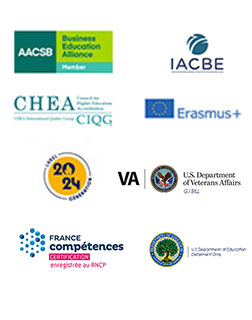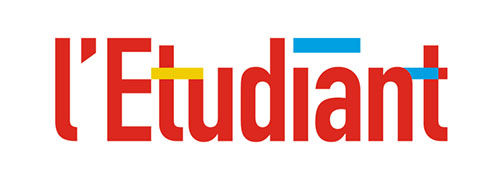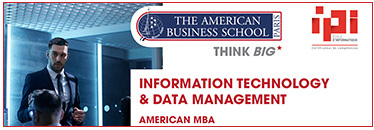
HOW TO MANAGE EFFICIENTLY IN A CONTEXT OF UNCERTAINTY?
Management in times of crisis calls for the company’s ability to manage uncertainty and cope with the unknown. During the Covid-19 pandemic and the professional constraints it caused, the role of managers proved to be decisive in the process of reorganising the company. They had to be agile in challenging the usual work configurations in order to preserve the health of employees and maintain a satisfactory or at least reasonable level of productivity. Today, uncertainty must become part of the management process and culture of the company. Managers must lead a paradigm shift to get there. The manager must make employees aware of uncertainty but also let them know what measures are planned to deal with it. This is the best way to help them carry out their activities in the best possible conditions and to bring serenity to a challenging environment.

MANAGING UNCERTAINTY TO BETTER HANDLE IT AT WORK
The meteoric rise of the pandemic in some parts of the world, the emergence of new and potentially more dangerous variants, the restriction of certain personal freedoms, lockdowns, the sluggish progress of vaccination campaigns… All of these variables are feeding the anxieties of managers, employees, financial markets and governments.
Despite the aid deployed in various countries to reassure companies and investors, fluctuations in the financial markets remain a major source of concern. In reaction to the WHO’s announcement that Covid-19 had entered the pandemic phase just over a year ago, the Paris stock market experienced its biggest crash ever on Thursday March 12, 2020, closing at -12.28%, in line with the world’s major financial markets. The measures taken by the European Central Bank (ECB) to soften the economic fallout caused by Covid-19 failed to reassure investors.
This sudden switch to a period of high uncertainty in the very short term requires a paradigm shift that is not always easy to achieve, especially as such a move requires adherence to the culture of change. Normally, a manager can afford to take a long-term view with a fairly reasonable margin of error. Today, the strategic approach is replaced by an operational and tactical one. This lack of visibility and inability to project oneself into the future can cause anxiety and demotivation.
MANAGERS MUST BE HONEST, EXEMPLARY AND HIGHLY ADAPTABLE
As the link between the directors and the employees, the manager plays a major role in spreading the company’s culture. His or her management style, philosophy, decisions and leadership determine the personality of the company and the image it projects to employees. In times of economic uncertainty, and despite a blatant lack of visibility, the manager must demonstrate his composure and be reassuring to his employees. He must rally them around the company’s objectives and provide them with a certain stability in the exceptional situation we are experiencing. The most concerned employees will try to interpret the manager’s decisions and behavior in order to draw conclusions. This is why the manager must remain calm and aware of the psychological impact of his or her actions.
Therefore, in a context of uncertainty, the manager must be exemplary and honest in his or her decision making, even when there is insufficient information. The manager can choose between two approaches:
- Rely on total transparency and admit the possibility of uninformed decision-making in a context of uncertainty and lack of data.
- Opt for a “camouflage” approach to smooth out the rough edges and give the illusion of total control.
It goes without saying that transparency remains the most judicious option to preserve team cohesion and empower employees in times of uncertainty. If the manager opts for the second option, and puts forward the wrong arguments, he or she risks losing credibility, as employees will feel presented with a fait accompli and will not be able to cope with a problem they did not expect. This endeavor to achieve greater transparency requires a sense of responsibility, a strong charisma and a willingness to take responsibility for the consequences of one’s decisions. The manager must also be both agile and patient to succeed in this transition.
STEPPING OUT OF THE COMFORT ZONE TO FACE THE UNKNOWN
To manage effectively in the current climate of uncertainty and to overcome this systemic crisis and its unclear outcome, the manager will have to step out of his or her comfort zone on a daily basis. He or she will have to question the “Command & Control” management system and engage in a process of continuous improvement to adapt.
To do so, he/she will have to shake up traditional codes and pre-established lines. Depending on the needs and constraints of this difficult period, he will probably have to redefine roles and review the missions and responsibilities of each team member, delegate more and involve employees in new missions to give them more responsibility and autonomy. Employees will be more motivated and enthusiastic and the company culture will be stronger.
The manager will have to tackle immobilism by being proactive in the face of the lack of visibility. This means taking risks, experimenting, iterating, etc. He or she may have to settle for a day-to-day approach if he or she does not have the visibility to make long-term, impactful decisions. This new way of managing objectives and priorities requires good communication, so that employees can stay on track, while remaining prepared for all eventualities.
Managers who fall into the trap of micromanagement need to build trust with their staff and focus on solving structural problems. They also need to make their employees aware of the benefits of this paradigm shift while taking into account the company’s own culture.
This is an important factor of motivation and adhesion. Employees will be more willing to give their best. It is therefore in everyone’s interest, managers and employees alike, to do everything possible to protect the company from uncertainty and to get through this turbulence in the best possible conditions. The company will only be stronger in the long run!








